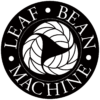Unfortunately, “Decaf” seems to be a dirty word in the coffee industry (“death before decaf”, anyone?). But the demand for good quality decaf is on the rise! When selected, processed, roasted, and brewed properly, Decaf can match the quality we have all come to expect from our coffee.
So many changes have taken place in the coffee industry in recent years and decaf is also benefiting from these changes. From new methods of caffeine removal, to roasters having a better understanding of roasting decaf beans and baristas taking more care of their processes. All of this contributes to developing exceptional decaffeinated coffee with sweetness and flavour (a far cry from the woody and bland decaf of the past).
The Decaffeination Process
It’s important to note that decaffeinated coffee is not 100% caffeine-free; in fact, most decaf coffees are 97-99% caffeine-free. The coffee is grown in the same way as regular coffee beans. Once the green beans are harvested, the processing begins to remove the caffeine from the green beans prior to the roasting process.
There are many processing methods available to remove caffeine from coffee beans, but here at Leaf Bean Machine we buy and sell Swiss Water Processed coffee beans.
Swiss Water Process (SWP)
The SWP is far superior to what we have seen in the past, where solvents have been used to remove caffeine from coffee beans. SWP relies on two concepts to decaffeinate coffee beans – solubility and osmosis.
The green beans are soaked in caffeine-free Green Coffee Extract (GCE). This allows the caffeine to be extracted from the beans and into the solution whilst the beans can retain their flavour components.
The caffeine is then removed from the GCE solution via carbon filters, making the GCE ready to be refreshed so it can be used to decaffeinate the next batch of beans. The decaffeinated beans are then dried to their original moisture level and ready to be roasted.
The Benefits
Decaffeinated coffee may be slightly lower in antioxidants than regular coffee, but you can still enjoy the health benefits of these antioxidants without the jitters you can get from too much caffeinated coffee.
Decaf also lets those who are sensitive to caffeine, such as sufferers of cardiovascular disease or anxiety disorders, and pregnant or breast-feeding women to still partake in the pleasure of enjoying the same specialty coffee experience as the rest of us. Decaf drinkers are often drinking decaf in the first place because they love the taste of coffee (it’s clearly not the caffeine they are interested in) and they usually pay a bit more to do so. This is even more reason for decaf to be processed, roasted, and prepared to the highest standards.
It takes approximately five to six hours for caffeine to metabolise in healthy adults; so that means if you consume 100mg of caffeine (about an 8oz cup of brewed coffee) at mid-day, you would still have 50mg in your system around 5:45 pm, which might not seem like much but compound this with another cup at 2pm, then another at 4pm, and you can see why people have trouble sleeping. Decaf is a great option to help reduce your caffeine intake and get a great night’s sleep, whilst still enjoying your mid-afternoon brew.
Brewing
As with all our coffee, we recommend buying fresh beans, grinding fresh to order, and brewing to your recipe on clean equipment and devices. Don’t skimp on these details just because you’re skimping on caffeine! You might just surprise yourself with how good decaf can actually taste.
If you would like to try our delicious SWP Decaf, please pop in to the shop and we would be happy to make you a cuppa.
Summah Grant
Barista Trainer & Customer Care



